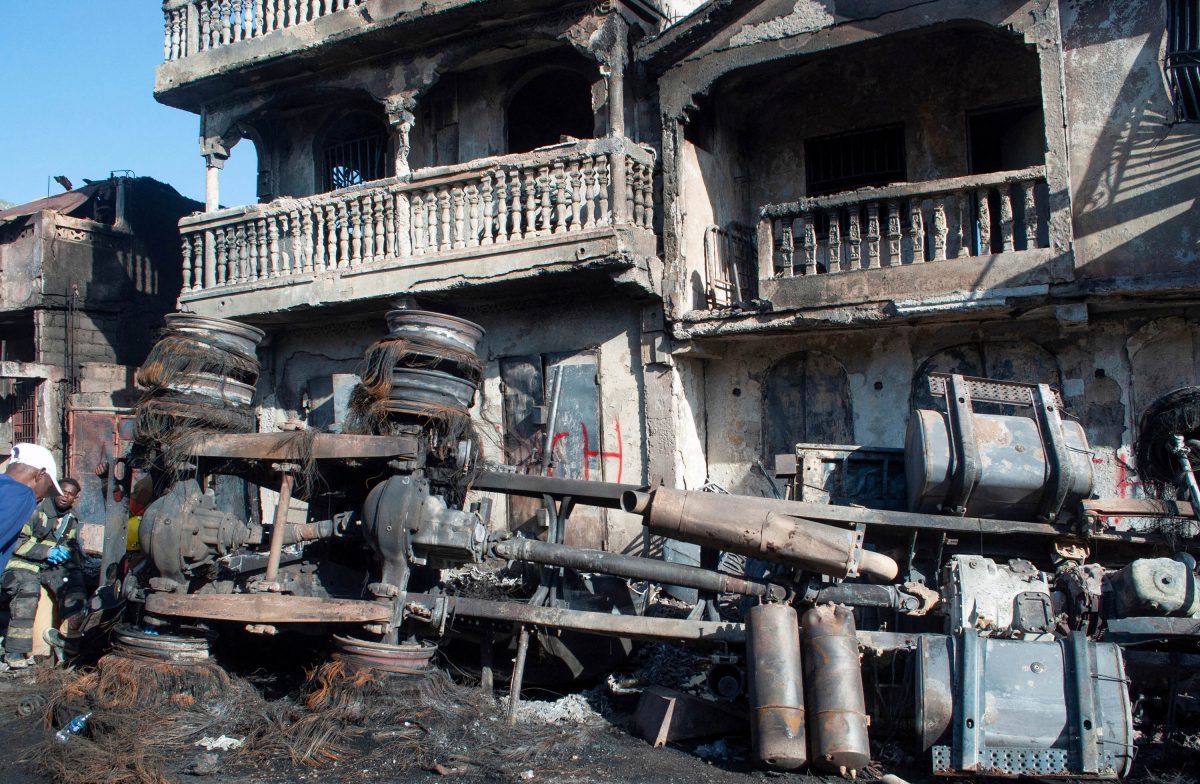CAP-HAITIEN, Haiti, (Reuters) – Haitian authorities yesterday searched for victims from a fuel truck explosion in the city of Cap-Haitien that killed at least 60 people, amid reports that nearby residents had attempted to take fuel from the vehicle before it exploded.
Hundreds of people yesterday remained at the scene of Monday night’s blast, including shocked neighbors looking for loved ones amid destroyed houses, as well as people attempting to dismantle the charred remains of the truck for scrap metal.
“I am very concerned about the number of people who died,” said 64-year-old Justorme Louis Fils, who lives near the scene of the explosion. “I can identify some of the houses of people I know, but I can’t identify them among the victims.”
The truck had flipped over as it was seeking to avoid running over a motorcycle, he said.
Haitian newspaper Le Nouvelliste quoted Patrick Almonor of the Cap-Haitien municipal commission as saying, “Local residents were flocking to the truck when the explosion occurred.”
Severe fuel shortages in recent months have left many Haitians desperate to ensure supplies of gasoline.
Earlier, rescue workers loaded bodies covered in white sheets onto trucks to be taken away. The blast damaged nearby houses and shops and destroyed motorbikes and cars.
Prime Minister Ariel Henry visited the Justinien University Hospital, where most of the victims are being treated.
“We are sad that so many people got hurt and so many people died,” Henry said at a news conference.
Health ministry official Laure Adrien said four people had died in the hospital from their injuries and that 15 people were transferred to other facilities. The full death toll is not yet known, he said.
A coalition of gangs blockaded fuel terminals for nearly a month starting in October, leading to widespread shortages of gasoline and diesel that forced many businesses to close.
The gangs last month lifted the blockade, but many Haitians say they still struggle to find fuel. The government last week announced a fuel price hike due to the expense of existing subsidies.
Gangs have grown more powerful since the July assassination of President Jovenel Moise, which created a political vacuum and allowed criminal groups to expand their territory.
Haiti also suffered a devastating earthquake in August that killed more than 2,000 people and destroyed homes in the country’s southern peninsula.





